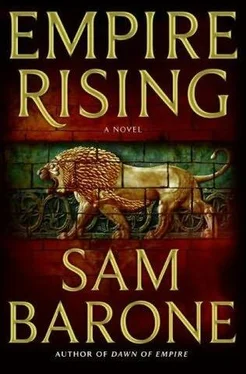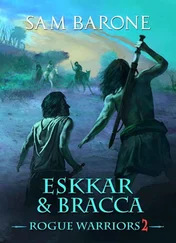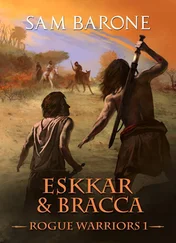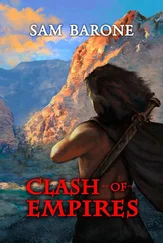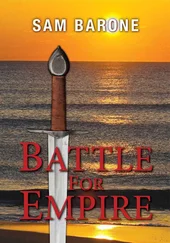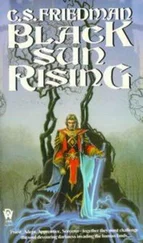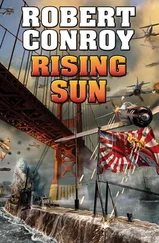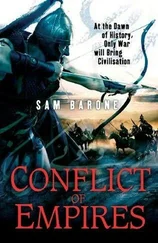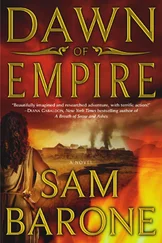Sam Barone - Empire Rising
Здесь есть возможность читать онлайн «Sam Barone - Empire Rising» весь текст электронной книги совершенно бесплатно (целиком полную версию без сокращений). В некоторых случаях можно слушать аудио, скачать через торрент в формате fb2 и присутствует краткое содержание. Жанр: Исторические приключения, на английском языке. Описание произведения, (предисловие) а так же отзывы посетителей доступны на портале библиотеки ЛибКат.
- Название:Empire Rising
- Автор:
- Жанр:
- Год:неизвестен
- ISBN:нет данных
- Рейтинг книги:4 / 5. Голосов: 1
-
Избранное:Добавить в избранное
- Отзывы:
-
Ваша оценка:
- 80
- 1
- 2
- 3
- 4
- 5
Empire Rising: краткое содержание, описание и аннотация
Предлагаем к чтению аннотацию, описание, краткое содержание или предисловие (зависит от того, что написал сам автор книги «Empire Rising»). Если вы не нашли необходимую информацию о книге — напишите в комментариях, мы постараемся отыскать её.
Empire Rising — читать онлайн бесплатно полную книгу (весь текст) целиком
Ниже представлен текст книги, разбитый по страницам. Система сохранения места последней прочитанной страницы, позволяет с удобством читать онлайн бесплатно книгу «Empire Rising», без необходимости каждый раз заново искать на чём Вы остановились. Поставьте закладку, и сможете в любой момент перейти на страницу, на которой закончили чтение.
Интервал:
Закладка:
Korthac strode through, until he reached the center and halted, his men bunching up behind him.
Five men lay on the ground, staked out naked in the dirt. Two had died, blood pooled around their necks, their agony ended with slit throats. Half a dozen men and women knelt around the three who lived, sticks, rocks, or knives in their hands. Korthac noticed that one captive, a big man with dark hair and a gray-flecked beard, had only scrapes and bruises on his face and chest. He would be the leader, Korthac decided, saved for last so that he could watch his followers die and better appreciate his coming torment.
“What is this place?” Korthac’s hoarse words silenced the crowd. He’d scarcely raised his voice, but everyone recognized the authority in his tone. “What is this place?”
One of the kneeling men stood and replied, but Korthac could make no sense of his gibberish. Korthac tried again, using all the tongues he knew, but with the same effect.
“It’s called Magabad.”
Korthac could barely comprehend the words, and he glanced around to find the speaker. To his surprise, the words came from the bearded man spread-eagled on the ground, the captives’ leader. Lifting his bloody, sweat-soaked head from the ground, the man struggled to meet Korthac’s eyes.
“You understand the language of Egypt?”
“A few words, lord… learned from men I commanded.”
“And you are…?” Korthac strained to discern the man’s words.
“My name is Ariamus. I was…” The man’s voice broke, and he couldn’t get the words out.
Korthac turned to his subcommanders. “Cut that one loose.”
With none of them understanding the foreign tongue, the villagers stood speechless during this exchange. But when Korthac’s men pushed forward and started to free Ariamus, the crowd protested with a jabber of incomprehensible sounds that meant nothing to Korthac. One of the farmers stepped in front of Korthac, raising his voice and gesturing. Anger showed on the villager’s face as he waved his hands in excitement, and the rest joined in to support their leader, everyone shouting at the same time.
The knife flashed from Korthac’s belt and buried itself in the villager’s stomach. Almost as quickly, Korthac withdrew it, then pushed the man to the ground with his other hand. The dying man clutched his belly and bled into the dirt, his face showing as much surprise as pain.
Korthac’s fighters moved among the now-silent crowd, shoving them back with their hands. The dozen or so adult men, surrounded by their women and children, had no chance against Korthac’s seventy, even weakened by their ordeal in the arid wasteland. The few knives his followers still possessed made the crowd step back. None of Korthac’s men possessed a sword. Even he had discarded his fine blade weeks ago, its weight magnified by the desert heat.
A handful of villagers turned and fled. Korthac frowned at the sight.
If they kept running, they would get away. His men had no stamina to pursue.
The subcommander finished cutting Ariamus free, then pushed him to his knees at Korthac’s feet.
“Water, lord,” Ariamus gasped, lowering his forehead to the ground.
“Why should I give you water? Are you the leader of these captives?”
“Yes, lord. Please, lord, we’ve had no food or water since yesterday.”
Korthac thought of his own hunger and the harsh passage just completed. “You will serve me… Ariamus? If I give you your life, you and your men will swear to obey my commands?” His voice rang out over the village, and Korthac felt his power and purpose returning. “Serve me faithfully, or you die.”
“Whatever you say… lord. Just give me water.”
Korthac gazed at those surrounding him. Only fear or obedience showed on their faces, the first of those in this new land to submit to his rule. He turned to his subcommanders. “Round up the villagers. Have them bring food and water.” He walked toward the largest of the nearby huts, unable to resist the shady interior any longer. “And bring that one to me.” He pointed to Ariamus, still crouching in the dirt. “We have much to discuss.”
Fifteen days later, the horror of the desert trek had almost faded from memory. Korthac had gained back much of the weight he’d lost and almost all of his strength. The bloody scabs on his hands and knees had closed, then healed. Belted around his waist hung a well-made bronze sword, taken from one of the villagers who had in turn captured it from Ariamus. Korthac’s dark hair hung neatly around his shoulders, trimmed and combed by one of the village women.
A slight man with the wiry muscles and the endurance of a runner, Korthac knew he had to stay fi t, had to be stronger and more skillful with every weapon than the men he commanded. They must fear his anger as much as they respected his cunning. It must always be so.
The day after they reached the village, Korthac set up a regimen for himself. Each morning he trained with the wooden swords the sullen villagers carved for him and his men. Then he spent three hours with Ariamus, learning the main dialects of the Land Between the Rivers, as the inhabitants called the farmlands they occupied.
Afterward, Korthac rode for two hours, hardening his thighs and back as he forced the village’s only horse up and down the steep and rocky hills until his mastery of the animal had returned. While he rode, his subcommanders kept Ariamus busy; they took charge of their newest recruit, forcing him to learn the dialect of northern Egypt. Their wooden swords served another function: to make sure their pupil applied himself diligently.
When darkness approached, Korthac returned to his language lessons with Ariamus. They talked long into the night. Korthac learned not only the language and its nuances, but also the customs and beliefs of the people in this new land. This night, an hour before sunset, Korthac relaxed on a small mat under a poplar tree, his back leaning against the slim trunk.
Six feet away, Ariamus sat cross-legged in the dirt. Two of Korthac’s men squatted a few paces behind Ariamus.
Korthac had learned much from Ariamus, far more than the man intended to reveal. It hadn’t taken long to discover his weaknesses-his lust for gold, women, and power. But Korthac trusted no one, and so his men remained nearby. He didn’t want Ariamus to have any sudden change of heart, at least not until the man had given up every bit of useful information he possessed.
“So, Ariamus, tell me again about this great village of Orak.”
“I’ve already told you everything I know, lord. My head aches trying to remember more to tell you.” He looked up at Korthac, noted the frown that had suddenly formed, and quickly went on. “Lord, Orak is about two hundred miles from this place, across both the Euphrates and the Tigris rivers. A few weeks ago they drove off a mighty barbarian horde. Now Orak is the most powerful village in the land. They say that soon all villages in the countryside will defer to Orak.”
“And their leader, this… Eskkar?”
“An ignorant barbarian, lord. A stupid lout driven out by his own kind, no doubt for good reason. He could barely speak our language when he came to Orak, and he drank his pay as soon as he earned it. He was my least subcommander when I led Orak’s guard. If it wasn’t for his skill with a horse, he’d have been nothing more than a common soldier.”
“Yet now you say he commands three thousand people in Orak while you nearly died here in the dirt. Doesn’t that seem… strange to you?”
Ariamus squirmed and clenched his fist, uncomfortable at being reminded how far he’d fallen. “Eskkar took a witch for a wife. Some slave girl from the south who belonged to one of Orak’s ruling families. She bewitched him. They say she rules Orak through him.”
Читать дальшеИнтервал:
Закладка:
Похожие книги на «Empire Rising»
Представляем Вашему вниманию похожие книги на «Empire Rising» списком для выбора. Мы отобрали схожую по названию и смыслу литературу в надежде предоставить читателям больше вариантов отыскать новые, интересные, ещё непрочитанные произведения.
Обсуждение, отзывы о книге «Empire Rising» и просто собственные мнения читателей. Оставьте ваши комментарии, напишите, что Вы думаете о произведении, его смысле или главных героях. Укажите что конкретно понравилось, а что нет, и почему Вы так считаете.
